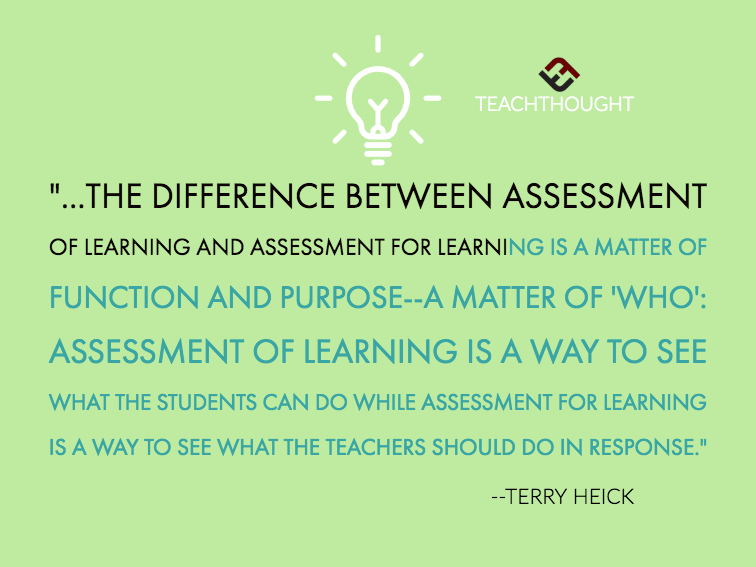What Is The Difference Between Assessment Of And Assessment For Learning?
It boils down to purpose. In 50 Ways To Measure Understanding, I talked about the purpose of assessment:
Assessment: Of Learning vs. For Learning
Assessment is often discussed as though it were a single act—a quiz, test, or score. But its real power comes from clarity of purpose. If you’re wondering what is the purpose of assessment?, the answer determines how you design, use, and respond to it.
Think like a doctor: Before you design an assessment, you need a plan for how you’ll use the results. Data without a purpose wastes time, energy, and resources—both yours and your students’.
Assessment For vs. Of Learning
Assessment for learning (What Is Formative Assessment?) is designed to inform instruction. The goal is not to sort or label students, but to generate feedback teachers can use to revise lessons, activities, or pacing. In this sense, the assessment’s purpose is diagnostic—it helps teachers decide what to do next.
Assessment of learning (commonly called summative assessment) measures what students have learned after instruction. The purpose here is accountability—demonstrating achievement against standards, benchmarks, or objectives. These assessments are usually graded and reported, often carrying high stakes for students.
In practice, the same assessment tool can serve either function. A quiz might be used as a quick check to guide tomorrow’s lesson (for learning), or as an end-of-unit measure of mastery (of learning). The difference lies in how the results are used.
Before, During, and After Instruction
Assessment is commonly grouped by timing:
• Pre-assessment: Before instruction, to identify prior knowledge and guide planning.
• Formative assessment: During instruction, to provide ongoing feedback and inform next steps.
• Summative assessment: After instruction, to measure achievement or proficiency.
Pre-assessments can blur categories. They assess what students already know (of learning) but also generate information teachers can use to adapt instruction (for learning).
The Purpose Question
Ultimately, the central question is simple: What is the assessment supposed to do?
If the goal is to reveal what students can do, it’s of learning. If the goal is to guide what teachers should do next, it’s for learning.
The distinction is less about labels and more about use. The real value of assessment is not the score itself, but the instructional decisions it makes possible.
Related Reading
• What Is the Purpose of Assessment?
• 50 Ways To Measure Understanding
• The Difference Between a Good Question and a Bad Questions
Research
Black, P., & Wiliam, D. (1998). Inside the black box: Raising standards through classroom assessment. Phi Delta Kappan, 80(2), 139–148.

